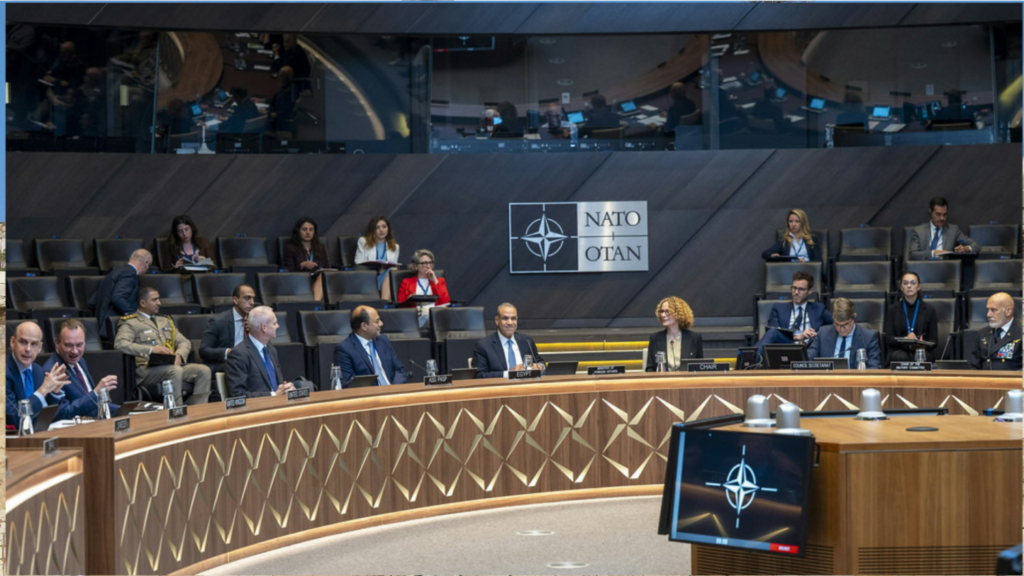The Balkan Projection: Britain’s Externalisation of Migration Policy
Modern Britain can be described as having a political climate charged by migration anxieties and rising populism. In recent times, the United Kingdom’s efforts to curb irregular migration continue to evolve in both ambition and controversy. Following the political turbulence and violation of human rights surrounding the government’s Rwanda scheme, Labour’s recent attempts to secure a similar, though more diplomatic arrangement with Albania have placed British prime minister Keir Starmer’s migration strategy under scrutiny. The prime minister flew to Tirana to have his plans publicly dismissed; prompting questions about both his policy’s direction (expanding to the rest of the Balkans) and the broader trajectory of British migration politics.
The backdrop: a rising tide of anti-immigration sentiment, the growing influence of Reform UK in British council elections and an institutional political consensus increasingly oriented around deterrence rather than integration. Labour’s approach appears to be as opportunistic as it is ideologically incoherent (in the popular perception of Labour values). Starmer’s overture to Albania, labelled by critics as embarrassing, is emblematic of a broader political shift. The UK is no longer debating over the deportation of asylum seekers; rather it is rapidly embracing a policy architecture built around “migration return hubs,” externalised border enforcement, and the offshoring of human rights responsibilities. This trend is not fuelled by humanitarian concerns but by the rise of anti-migrant sentiment with the ascent of Reform UK and a public display of the hollowing of public moral clarity in the so-called progressive centre.
The Conservative-led Rwanda policy has loomed large over the national conversation on asylum. Unveiled in 2022, the policy aimed to deter crossings in the English Channel using the state apparatus to forcibly relocate asylum seekers to Rwanda where their claims could be processed. Whilst this policy has faced widespread criticism and legal challenges, culminating in not a single flight taking off with hundreds of millions of pounds committed to the scheme, it has nonetheless set the precedent that the UK has plans to outsource its asylum responsibilities beyond its borders.
Understanding the Labour government’s positioning on immigration requires acknowledging the gravitational pull of Reform UK. Under the leadership of Nigel Farage, the party has carved out space in the British national debate by leaning heavily into the themes of border control, sovereignty, political disillusionment and populism – capitalising on voters’ frustrations towards the presently established parties of the last few decades. This growing influence has forced the Labour government into a form of reactive recalibration; opting for strategies best described as calibrated reassurance, signalling their own firmness on enforcing migration policy without completely embracing Reform’s aesthetic rhetoric associated with the right wing – policy is a separate matter.
Starmer made clear that a Labour government would scrap the Rwanda scheme. Yet, in the same breath, underscored commitments to stop Channel crossings and reduce delays in the asylum system. The result of Labour’s political environment is a careful dance – seeking to project right wing policies with social-democratic aesthetics. It is within this balancing act that the recent overture to Albania should be understood, not as simply an ideologically driven departure, but as a tactical appeasement for Reform voters.
The success of this is, again, a separate matter. In contrast to the Rwanda scheme, Labour’s proposed agreement with Albania focused on speeding up the return of Albanian nationals whose asylum claims were unsuccessful. The goal was to facilitate co-operation between the UK and Albania without avoiding the reputational pitfalls of offshoring asylum claims to other nation states. Prime Minister Edi Rama issued a rebuke to the proposed policy, accusing Britain of perpetuating unfair narratives about Albanian citizens and rejecting any deal that would imply Albania serve as a holding ground for UK asylum concerns. Britain has since considered other Balkan territories.
Albania’s response may have been diplomatically pointed, but it reflected a broader frustration, a rising surge of anti-Albanian sentiment, accusations of gangsterism, comparable to the levels of discrimination faced by Italian Americans in the 1900s. Last year, the Home Office suggested that over a quarter of migrants crossing the Channel in small boats were Albanian nationals, a figure widely challenged.
Albania occupies a uniquely symbolic place in British migration narratives, not necessarily because of scale, but public perception. For many, Albania has become shorthand for deeper concerns around border control, enforcement and the perceived erosion of public order. In that context, the discourse has blurred the line between policy and stereotype. Labour’s interest in a return agreement was as much about optics as operations. A deal with Albania could have marginally eased pressure on asylum systems, but more importantly, signalled resolve on curbing migration. Yet the failure of this proposal sets strategic dilemmas, can the Labour government pursue similar arrangements without entrenching stigma or fuelling political caricatures? And more fundamentally, can the UK meaningfully engage with partners on migration without appearing to externalise their responsibilities?
However, this is not an isolated event that is exclusive to Britain. Such arrangements, like the EU’s partnerships with African territories have been widely criticised by human rights organisations, yet they remain politically popular. While Labour insists it is not pursuing the Rwanda model, its Albanian gambit suggests that return arrangements remain an aspect of their future foreign policy. The question is whether such deals can be pursued in a way that is both effective, respectful of international norms and not perpetuating of xenophobic stereotypes.



